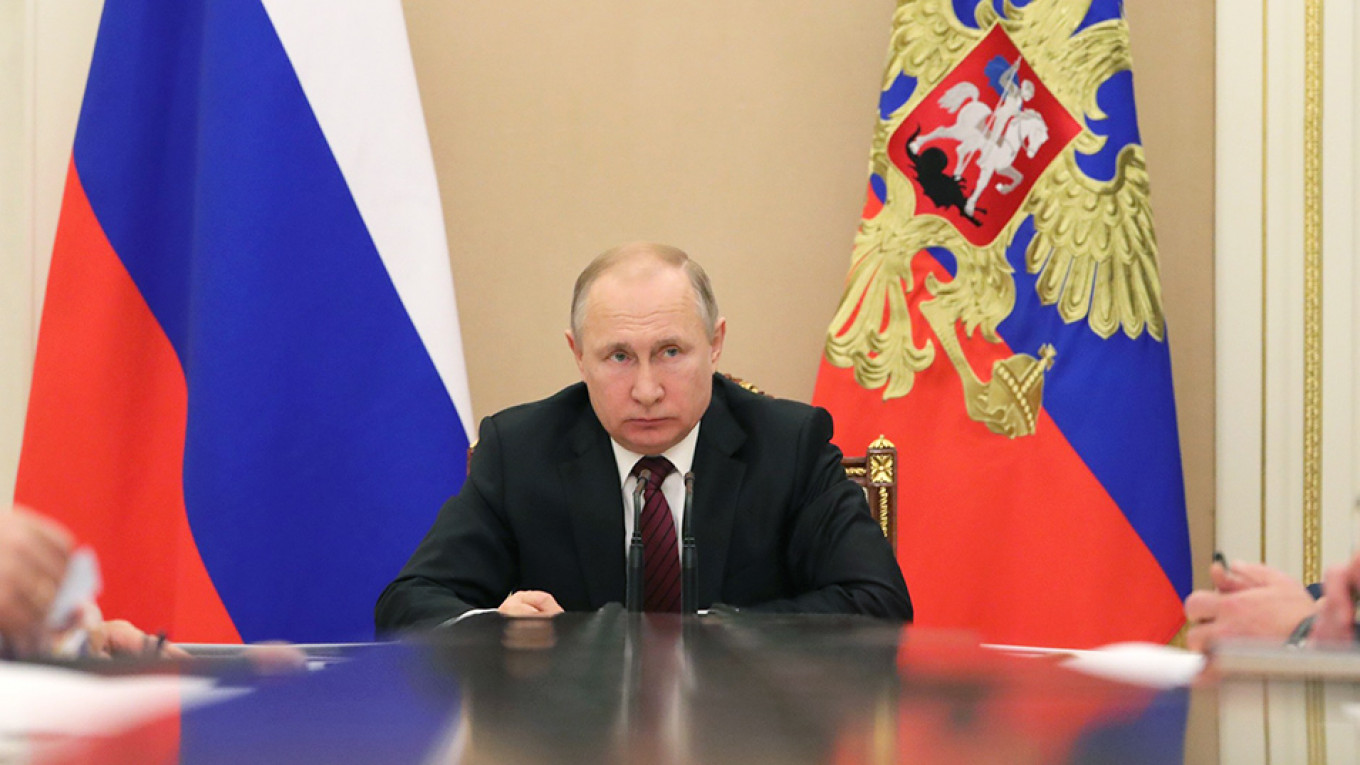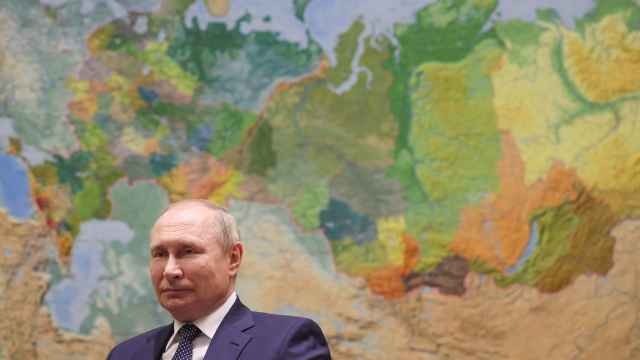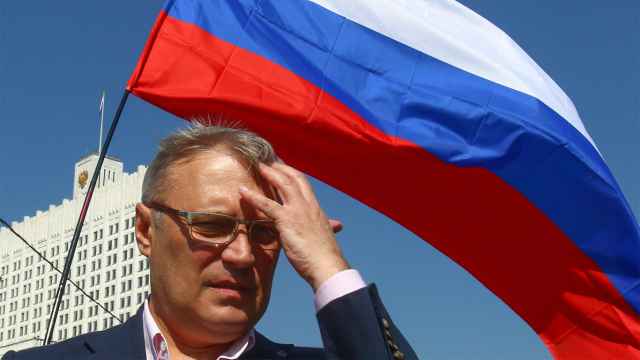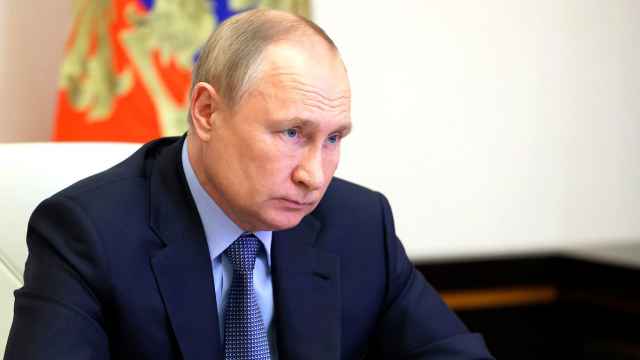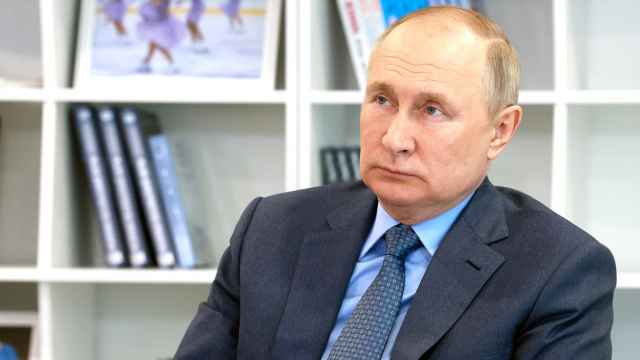By all outward appearances, Russia's President Vladimir Putin’s hold on power seems secure.
His party won the 2018 elections with 77 percent of the vote. He has consolidated his control of the Russian media. Most of his rivals have either died or been driven into exile. Now he can deploy his country’s wealthiest oligarchs to pursue the Kremlin’s agenda — just as he did after U.S. President Donald Trump won the 2016 election.
So why is the Russian president so scared?
One might think an autocrat who has rigged his nation’s political rules to stay in power would have little to fear from dissidents. Allowing a nominal opposition might even have benefits, such as relieving economic pressure from the U.S. and its allies in the West and making it easier for his henchmen to spend their fortunes.
Nevertheless, Putin remains afraid of dissent. Consider a report released this week by the Coalition to Free the Kremlin’s Political Prisoners. Composed of a dozen Western and Russian non-governmental organizations, the group found that as of March 25, Russian jails held 236 political prisoners. That is more than five times the political prisoners Russia held in 2015, when the total was just 46.
At a press conference Monday, exiled opposition leader Vladimir Kara-Murza provided yet more perspective for that figure. When the famous physicist and dissident Andrei Sakharov won the Nobel Peace Prize in 1975, he claimed the Soviet Union held 176 prisoners of conscience. It’s extraordinary to think that today, nearly 30 years after the collapse of the Soviet Union, Russia holds one-third more.
Today’s Russian political prisoners include journalists, activists and lawyers. Some are falsely charged with serious crimes such as murder and embezzlement. Others are in jail for their tweets.
In November 2017, for example, Yan Sidorov and Vladislav Mordasov were arrested for trying to organize a protest of their regional government. They have been in custody ever since, and the report says Mordasov has suffered multiple beatings.
There is also the case of Oleg Sentsov, a Ukrainian filmmaker and critic of Russia’s annexation of Crimea. He was sentenced to prison for allegedly plotting terrorist attacks and belonging to a Ukrainian nationalist group, an affiliation denied by the group itself. He confessed to those crimes after being tortured, according to several human rights groups.
Natalia Arno, the president of the Free Russia Foundation (a member of the coalition that produced the report), told reporters this week that the spike in political prisoners raises questions not only about the Russian state but also about its leader.
“What is Vladimir Putin afraid of?” she asked. It’s a question governments looking to counter Russian aggression might want to ask as well. Putin may project strength and daring, but he doesn’t trust his people enough to let them hear any of his critics.
This article was originally published in Bloomberg Content.
A Message from The Moscow Times:
Dear readers,
We are facing unprecedented challenges. Russia's Prosecutor General's Office has designated The Moscow Times as an "undesirable" organization, criminalizing our work and putting our staff at risk of prosecution. This follows our earlier unjust labeling as a "foreign agent."
These actions are direct attempts to silence independent journalism in Russia. The authorities claim our work "discredits the decisions of the Russian leadership." We see things differently: we strive to provide accurate, unbiased reporting on Russia.
We, the journalists of The Moscow Times, refuse to be silenced. But to continue our work, we need your help.
Your support, no matter how small, makes a world of difference. If you can, please support us monthly starting from just $2. It's quick to set up, and every contribution makes a significant impact.
By supporting The Moscow Times, you're defending open, independent journalism in the face of repression. Thank you for standing with us.
Remind me later.



